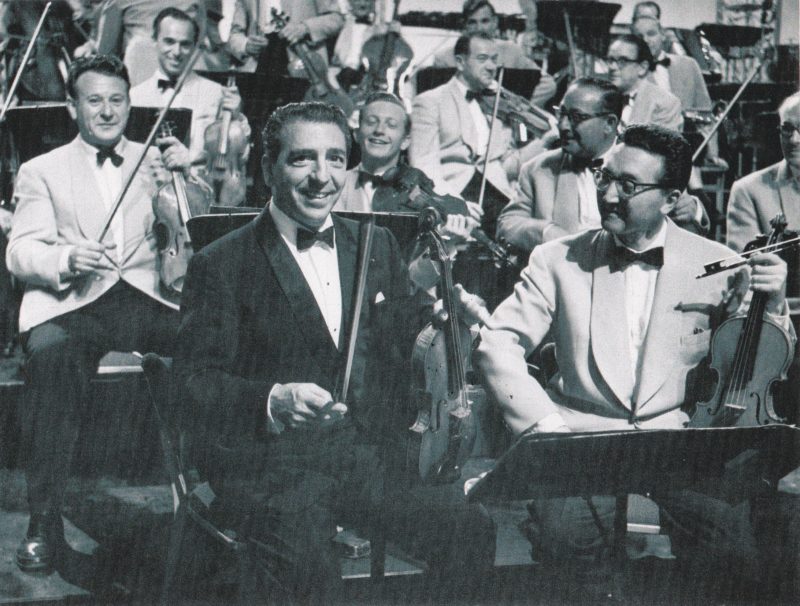“What makes a superstar?” was the subject of the U3A monthly talk on Monday, January 21, and a packed hall awaited the revelation of the identity of the superstar’s identity.
The speaker, Simon Mott, entertaining with humour, visual aids, video and slides, whetted the audience’s curiosity by playing a short piece of music. Simon explained that there were 10 secrets to making a superstar and this person used all of them.
Simon was talking about Annunzio Paolo Mantovani, (1905-1980) conductor, composer, pianist, brilliant violinist and band leader, so popular that he was known mainly by just his last name.
Simon said: “His legacy has been the birth of the string orchestra music which goes to the heart.” Mantovani’s family, which had come from Italy to London, lived in impoverished circumstances as his violinist father did not earn much money. His father did not want his son to end up in the same poverty trap, working as a musician, but his son won the argument.
Mantovani set out to follow all 10 secrets, one of which was “courage of your convictions”. At 16 he was giving violin performances to packed audiences. At 18 he moved to Birmingham, established the Palm Orchestra and toured. Other “secrets” followed, making him a successful superstar after his return to London at 20: passion, being flexible, taking risks, collaborating and embracing new technology.
What made him a household name was agreeing to advertise a breakfast cereal on a billboard and at the same time going on tour having gathered all the musicians he knew. He started being heard on radio and later TV.
In spring 1937 he decided to remove the brass section from the dance band and was immediately ridiculed but his record sales shot up. As he was Italian, he could not front the orchestra during the war, so he collaborated with Noel Coward as artistic director and most importantly with Vera Lynn, then the forces’ sweetheart, and still alive now at 102. In 1944 he was involved in her orchestrations.
In 1950, the DECCA label offered to bankroll the establishment of his own large orchestra. He persuaded them to allow him to enlarge the violin section and in 1951 he followed with the further secret: “create a signature tune” which produced the number one hit “Charmaine.” In 1959 he had six albums in the chart at number one for 242 weeks (five years). Simon Mott finished with a surprise in the story. Mantovani was his grandfather.
The next U3A talk is on February 18 about the Middle East at the Community Centre in Conduit Hill.
Image Credits: Simon Matt's archive .



